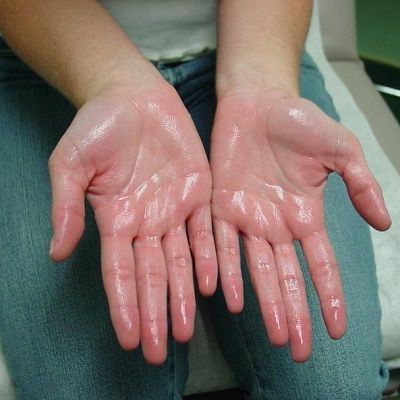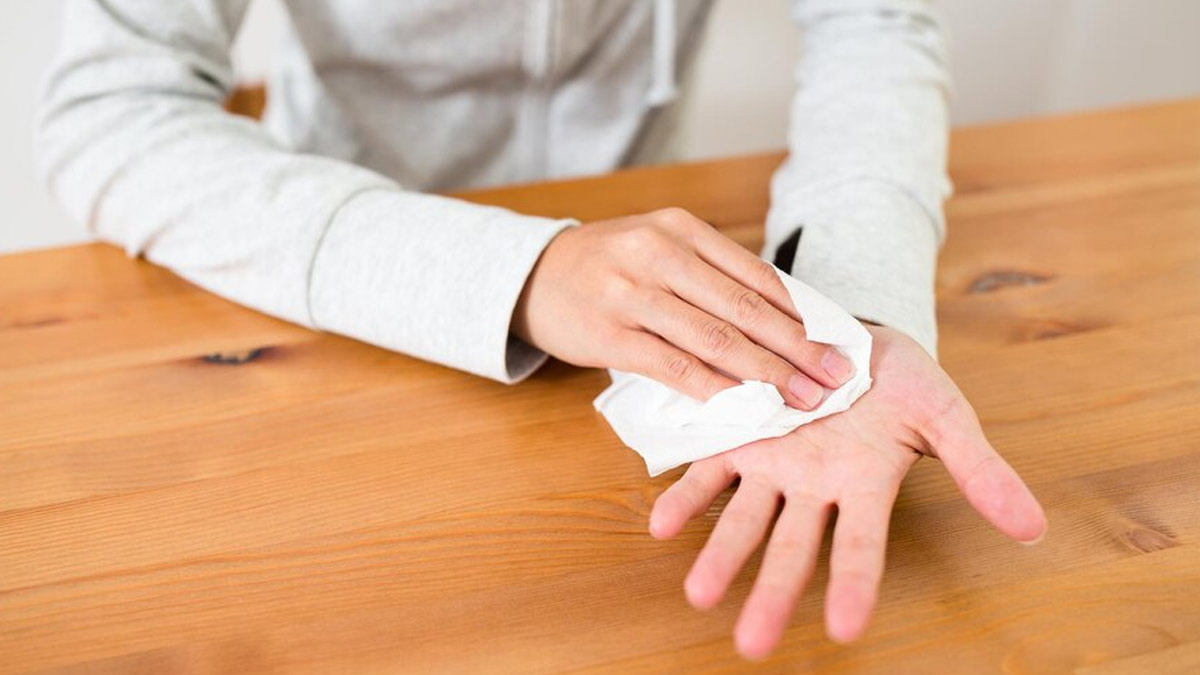Specialist Dermatology Solutions for Treatment of Hyperhydrosis of Hands: Comprehensive Guide
Introducing the Complexities of Excessive Sweating: A Comprehensive Guide to Medical Diagnosis and Monitoring
Excessive sweating, medically known as hyperhidrosis, is a problem that influences a substantial number of people and can have an extensive influence on their top quality of life. While sweating is an all-natural bodily function, its overactivity in hyperhidrosis presents a distinct set of challenges that often go beyond plain pain.

Understanding Hyperhidrosis Causes
Hyperhidrosis causes can be attributed to numerous variables such as genes, hormone discrepancies, and specific medical problems. Genes play a considerable role in primary focal hyperhidrosis, where people acquire the problem from their member of the family. This kind of hyperhidrosis often manifests in details areas like the hands, soles of the feet, underarms, and face. Hormone imbalances, particularly an over active thyroid gland or menopausal modifications, can additionally set off too much sweating. Additionally, particular medical conditions such as diabetic issues, heart problem, and infections can lead to additional generalised hyperhidrosis. These underlying health issues can interfere with the body's natural cooling system, causing the sweat glands to come to be over active. Comprehending the origin of hyperhidrosis is vital in detecting and efficiently handling this problem. By identifying the specific factors adding to extreme sweating, healthcare providers can tailor treatment strategies to resolve the underlying reason, using alleviation and improving the lifestyle for people affected by hyperhidrosis.
Identifying Hyperhidrosis Symptoms

In addition, hyperhidrosis signs might show up in psychological and social distress, as individuals might really feel self-conscious or anxious about their sweating, bring about evasion of social situations (How to stop sweaty hands). Additionally, repeated episodes of too much sweating can result in skin maceration, fungal infections, and a total decline in self-confidence
Diagnostic Process for Hyperhidrosis
Launching the analysis procedure for too much sweating entails detailed assessment of the individual's medical background and checkup. Asking about the beginning, duration, and causes of sweating episodes is critical to separate in between primary focal hyperhidrosis and additional generalised hyperhidrosis. Clinical background should additionally include questions about medicines, medical problems, and family background of hyperhidrosis.
Throughout the physical exam, specific focus is paid to the areas affected by sweating. The doctor might evaluate the degree of sweating, look for indications of underlying problems, and assess the influence of sweating on the individual's high quality of life. In addition, specific examinations like the gravimetric test, starch-iodine test, or skin conductance measurements may be conducted to evaluate the amount of sweat created.
Additionally, in instances where additional hyperhidrosis is believed, extra tests such as blood examinations, urine examinations, and imaging studies may be suggested to identify the underlying reason of excessive sweating. The diagnostic process intends to accurately figure out the type and root cause of hyperhidrosis to guide ideal management strategies.
Treatment Options for Hyperhidrosis
When dealing with too much sweating, numerous therapy choices are available to reduce signs and symptoms and improve the individual's top quality of life. The treatment strategy for hyperhidrosis relies on this the extent of symptoms and the individual's action to preliminary therapies.
Topical therapies, such as aluminum-based antiperspirants, are often suggested as the initial line of defense for managing light cases of hyperhidrosis. These items work by plugging the sweat air ducts, thus decreasing the quantity of sweat that reaches the skin's surface. For individuals with much more serious symptoms, oral medicines like anticholinergics might be prescribed to aid reduce sweating. Nonetheless, these drugs can have adverse effects and are not suitable for everybody.

Effective Administration Strategies
To effectively take care of hyperhidrosis, a personalized and thorough therapy plan customized to the individual's certain needs and feedback to previous treatments is important. Iontophoresis, entailing the usage of a reduced electric present to decrease sweat gland task, can be useful for both palmoplantar and axillary hyperhidrosis. A multidisciplinary technique including skin specialists, key care medical professionals, and, if required, surgeons, can maximize the monitoring of hyperhidrosis.
Conclusion
Finally, hyperhidrosis is a problem identified by extreme sweating, which can considerably impact a person's top quality of life. By comprehending the reasons, recognizing the symptoms, and undergoing the diagnostic process, doctor can efficiently manage this problem. Therapy options include topical drugs, oral drugs, shots, and even operations in extreme cases. With correct diagnosis and monitoring methods, individuals struggling with hyperhidrosis can locate alleviation and boost their general health.
Excessive sweating, clinically understood as hyperhidrosis, is a condition that influences a significant number of individuals and can have an extensive effect on their quality this content of life. By recognizing the specific factors contributing to excessive sweating, healthcare carriers can tailor treatment plans to resolve the underlying cause, supplying alleviation and improving the top quality of life for individuals impacted by hyperhidrosis.
Hyperhidrosis, characterized by extreme sweating past what is needed for controling body temperature level, can considerably affect a person's quality of life. Asking about the onset, period, and causes of sweating episodes is essential to separate in between primary focal hyperhidrosis and secondary generalized hyperhidrosis. Sweaty hands treatment.In final thought, hyperhidrosis is a condition defined by too much sweating, which can considerably impact an individual's top quality of life